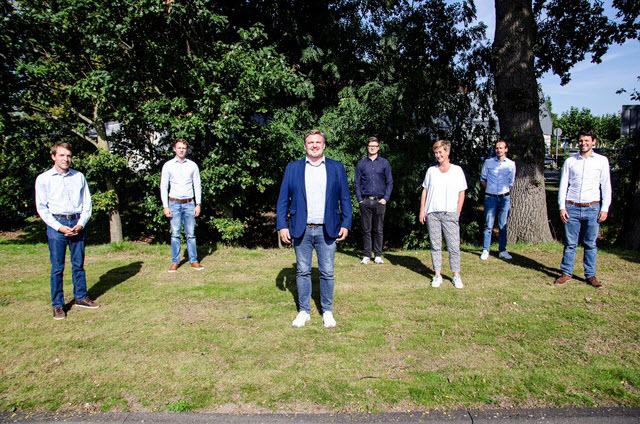
Münster University of Applied Sciences and project partners are researching dark fermentation
At the Münster University of Applied Sciences, the HyTech project is investigating regenerative possibilities for hydrogen production with partners from industry.

Researching dark fermentation: Markus Huth (Blue Methano), Sören Kamphus, Dr. Elmar Brügging, Tobias Weide, Stephanie Koch, Jan Völpel (Emcel) and Momoko Kristuf (Emceke) (from left). Image: Münster University of Applied Sciences / Frederik Tebbe
The so-called dark fermentation is examined. Different reactors and process parameters are tested in two test facilities in order to make the production of hydrogen as stable and efficient as possible.
The researchers see one way of sustainably producing hydrogen in dark fermentation. The process uses biomass, residues and waste water as raw materials for biological hydrogen generation. These raw materials, which have not been used until now, are converted into green hydrogen. The process is currently still in development.
Waste water containing starch and sugar in particular
In the dark fermentation process, organic substances are converted into hydrogen and volatile organic acids in a two-stage test facility by microorganisms in the absence of oxygen and light. Among other things, the research group examined wastewater from the food industry for its hydrogen potential in advance. “Wastewater containing starch and sugar is particularly profitable,” said Dr. Elmar Brügging as a preliminary conclusion. This is wastewater that has so far largely remained unused.
Project over three years
In the three-year HyTech project, the team will now advance research into dark fermentation. Different reactors and process parameters are tested in two test facilities in order to make the production of hydrogen as stable and efficient as possible and thus expand the range of usable residues. They also want to check the possible uses of the generated hydrogen and test which additional process steps are necessary in order to feed the generated green hydrogen into the natural gas network or, for example, to use it in fuel cells or in industry.
Industrial partner
To this end, the scientists are working together with the Berlin company Blue Methano GmbH, which will accompany the upcoming tests with gas analysis and, among other things, will provide gas measurement technology to determine the volume of the hydrogen produced. “The Cologne-based engineering office Emcel supports the team in economic matters and examines which developments are necessary so that green hydrogen can survive on the market.
Source: Munster University
Read the most up to date Fuel Cell and Hydrogen Industry news at FuelCellsWorks




